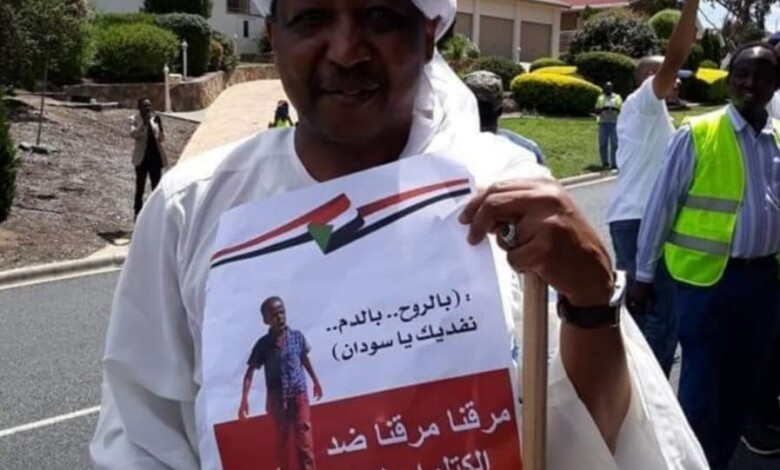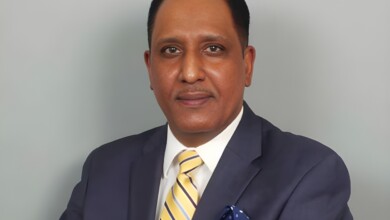Iran in Sudan: An intelligence Station in the Red Sea
instead of a naval base! Report: Moneim Suliman

After a break that lasted more than (8) years, the Iranian-Sudanese bilateral relations were restored. Military and security cooperation was restored with the return of the Islamists to the forefront after the 15th of April 2023 war broke out, and regained their control over political decisions, especially in regards to foreign relations.
Sudan had once severed its diplomatic relations with Iran in January 2016, in solidarity with the Kingdom of Saudi Arabia, following the attacks on the Saudi Embassy in “Tehran” and its Consulate in the city of “Mashhad.”
The Islamists played no role in making the decision to sever relations with Iran, as the decision was issued at the time by the Presidency of the Republic, maneuvered by Lt. Gen. Taha Othman Al-Hussein, who was then the director of -former- President Omar Al-Bashir’s office, and the man who had telephoned the Saudi Crown Prince Mohammed bin Salman to inform him of the decision, which angered the Islamists.
Even Ibrahim Ghandour, a leader in the Sudanese “Islamic Movement”, who was serving as Minister of Foreign Affairs at the time, stated that as Minister of Foreign Affairs he had no knowledge of the decision, and that it had been issued by President Al-Bashir and his office director, and he threatened to resign in rejection of the decision.
With their return to the decision-making positions, the Islamists are diligently attempting to restore Sudan’s former alliances.
At the beginning of this month (June), the Ministry of Foreign Affairs of the de facto authority in Port Sudan, which is fully controlled by the Sudanese “Islamic Movement”, announced the appointment of Abdulaziz Hussein Saleh as ambassador to Iran, and appointed Ambassador Khaled Al-Sheikh as his deputy. In return, Iran appointed Ambassador Hassan Shah Hosseini as its ambassador to Sudan.
What proves to be noteworthy in the matter of appointing ambassadors is that they are Security personnel rather than diplomats, which confirms that the interest in the Security aspect outweighs the diplomacy on both sides, as the Sudanese ambassador and his deputy are members of the Sudanese “Islamic Movement”, they joined the diplomatic field through the Security Service. Ambassador Abdulaziz Jumpstarted his career being a part of the “Popular Security”, which is a private security for the “Islamic Movement”. He was later appointed as an officer in the “Security Service”, and in 1996 he moved on to be a part of the Ministry of Foreign Affairs.
He rose quickly within the ranks until he was appointed as an ambassador. He previously worked as a security attaché at the Sudanese Embassy in Iran. His mission was to coordinate between the “Islamic Movement” in Sudan and the Iranian “Islamic Revolutionary Guard Corps”. He later worked in Chad, and his last position was Director of the Neighboring Countries Department at the Ministry of Foreign Affairs.
In similar fashion, his deputy, Khaled Al-Sheikh, who is still a part of the security for the Islamic Movement “Popular Security”, and previously worked as a Consul at the Sudanese Embassy in Egypt. The same applies to the Iranian ambassador, Hassan Shah Hosseini, who has a security background, as he worked in the Iranian “Islamic Revolutionary Guard Corps”, as well as in the Iranian Military Industrialization Program.
According to reliable Military and Security sources, Iran has sent (14) arms shipments, in the period from the beginning of last December 2023 until the 3rd of June of this year, the last of which was last week, when a Boeing 747 cargo plane operated by “Qeshm Fars” Airlines landed at Port Sudan Airport, fully loaded with military equipment.
A retired army officer with the rank of Major General residing in Port Sudan -who preferred to remain anonymous- shared that Iranian weapons shipments constitute of drones, guided artillery shells, mines, explosives, ammunition, automatic rifles, and advanced GPS devices.
He added that the latest Iranian plane, which landed at Port Sudan Airport, was carrying advanced GPS devices and “Mohajer 6” drones, which proved their accuracy in military operations against the Rapid Support Forces – according to the retired army officer’s description.
An informed and reliable Security source working in Port Sudan shared that the arrival of the aforementioned Iranian cargo plane coincided with the entry of the warship “Daisy” into Sudanese territorial waters, which is an Iranian spy ship affiliated with the “Islamic Revolutionary Guard Corps” that replaced the spy ship “Behshad,” that had in turn withdrew at the beginning of last April from the Red Sea where it was working to collect information for the “Houthis”.
Reports revealed an increase in the prices of luxury real estate rents in the city of Port Sudan, with the return of Iranian diplomatic activity. Regarding this matter, one of the city’s real estate owners told me of the existence of more than (30) properties rented by Iranian individuals. The properties range between residential buildings and offices. He added that most of them are in the “Transit” neighborhood in the center of the city.
Regarding the reason for this sudden, intense Iranian presence in the city, and the extent of its connection to what is being shared about Tehran’s desire to establish a naval base on the Red Sea, the reliable Security source denied Iran’s desire to accomplish such a matter, but disclosed information regarding a real Iranian desire to establish an Intelligence Station in the city overlooking the Red Sea. He stated: “The Iranian cargo planes arriving at the city’s airport carry -in addition to weapons and military equipment- other items belonging to the Iranian mission there”. Adding, “Trucks were often seen leaving the airport with Iranians on board,” suggesting that they may have been loaded with small-sized equipment and devices to establish their station.
For his part, a military expert confirmed Iran’s desire to establish an Intelligence Station in the coastal city, saying :“This is not a secret, as Iranian officials spoke about it with officials in the Intelligence Service and the Sudanese Ministry of Foreign Affairs,” adding that Tehran wishes to restore its relationship with Sudan and strengthen its influence in the strategic waterways, especially in the Red Sea, stating : “Iran’s strategy is based on control, and it is now threatening international navigation in Bab al-Mandab through its arm “the Houthis”, and if it succeeds in Sudan, it will have encircled the Arab Gulf States, becoming much closer to Israel, and close enough to aid “the Houthis” as well as to supply weapons to “Hamas” and “Hezbollah”.
The security expert expressed his apprehension that Iran incessantly encourages instability in the countries it enters, and gave the example of Iraq, Syria and Yemen, stating: “The first thing Iran will seek to accomplish is establishing a militia affiliated with it, and in the case of Sudan, such matter has become easier with the return of Islamists to decision-making positions. After the 15th of April 2023 war broke out and their leadership and extensive participation in the ongoing war.





